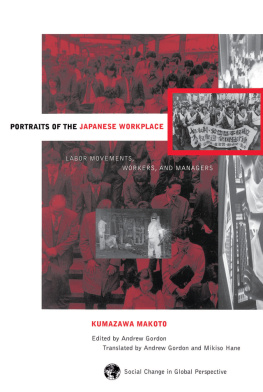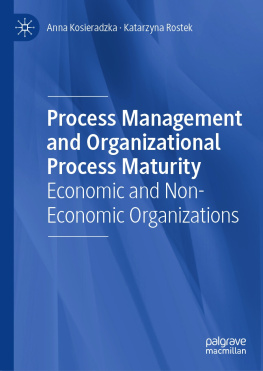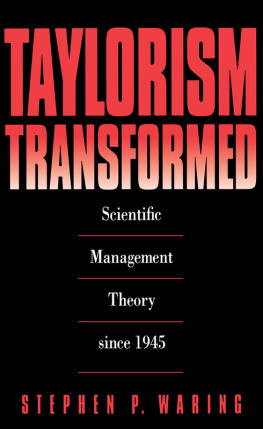The Dynamics of Japanese Organizations
This volume provides an overview of approaches to dynamic processes of organizing currently dominating academic discussion in Japan. Looking at the extent to which Japanese firms master the increasing complexity of the business environment by stimulating processes of organizing, the book first discusses the foundations for a philosophy of organizational dynamics. Particular management tools appropriate to stimulating dynamic processes of organizing are then examined. The book closes with a discussion stressing the importance of the linkage between industrial organizations and their emerging environments.
The contributors offer a critical approach to the dominating management paradigms of the Western mould. Their discussion of key problems and their suggestions for sharpening strategies and improving organizational performance will be thought-provoking and of key interest for all those studying Japanese management and organizational behaviour.
Frank-Jrgen Richter holds a management position with Robert Bosch Ltd in Stuttgart, Germany. He has been a research fellow at the University of Tsukuba, Tokyo and has taken part in international comparisons covering inter-firm networks.
Routledge Advances in Asia-Pacific Business
This series focuses on styles of business and management in the Asia-Pacific. It draws together the latest research into the key business topics such as finance, management, investment, joint ventures, strategy, business policy and marketing, as well as exploring current themes like change, transformation, economic growth, corruption, ethics and competition. It covers:
- manufacturing industries
- service sectors
- small and medium-sized companies
- large companies and transnationals
- specific country studies
- broader regional analyses
It assesses the growth and success of business enterprise in the region.
1 Employment Relations in the Growing Asian Economies
Edited by Anil Verma, Thomas A. Kochan and Russell D. Lansbury
2 The Dynamics of Japanese Organizations
Edited by Frank-Jrgen Richter
3 Business Relationships in East Asia
The European Experience
Edited by Roger Strange and Jim Slater
The Dynamics of Japanese Organizations
Edited by Frank-Jrgen Richter
First published 1996
by Routledge
2 Park Square, Milton Park, Abingdon, Oxon, 0X14 4RN
Simultaneously published in the USA and Canada
by Routledge
270 Madison Ave, New York NY 10016
Transferred to Digital Printing 2006
1996 Frank-Jrgen Richter
All rights reserved. No part of this book may be reprinted or reproduced or utilized in any form or by any electronic, mechanical, or other means, now known or hereafter invented, including photocopying and recording, or in any information storage or retrieval system, without permission in writing from the publishers.
British Library Cataloguing in Publication Data
A catalogue record for this book is available from the British Library
Library of Congress Cataloguing in Publication Data
The dynamics of Japanese organizations / edited by Frank-Jrgen Richter.
p. cm. (Routledge international studies in Asian-Pacific business ; v. 1)
Includes bibliographical references and index.
1. Industrial managementJapan. 2. Organizational behavior Japan. I. Richter, Frank-Jrgen. II. Series.
HD70.J3D96 1996
ISBN 041513191X
Contents
Tsuyoshi Numagami, Toshizumi Ohta and Ikujiro Nonaka
|
Haruo Hata and Charles Adamson
|
Magoroh Maruyama
|
Vera Calenbuhr
|
Tetsunori Koizumi
|
Haruo Takagi
|
Kenshu Kikuzawa
|
Shigekazu Ishihara, Keiko Ishihara, Mitsuo Nagamachi and Alfredo Pinochet
|
Frank-Jrgen Richter and Yoshiya Teramoto
|
Milan Zeleny
|
Nobuyuki Chikudate
|
Kenji Tanaka
|
Charles Adamson was born in Rhode Island, USA, in 1940. He received a BA from Goddard College, Vermont, USA, with a triple major in Electrical Engineering, Computer Applications and Japanese studies in 1973. He received a Doctorate in Education from Columbia Pacific University, California in 1988. After eight years of studying information with the US Army Intelligence Command and a year as Administrative Assistant at the Systems Science Center, Busch Center, University of Pennsylvania, he was Chief Researcher at the Kawai Institute of Suggestive Accelerative Learning, Trident College, Nagoya, Japan for 15 years. He became Professor of English at the Shizuoka Rikoka University in 1991.
Born in 1960, Vera Calenbuhr grew up and was educated in Cologne, Germany. She graduated from the University of Cologne in Chemistry (specialization: physical chemistry) and received her PhD from the Free University of Brussels on theoretical models of the self-organization of social insect behaviour using chemical communication. Post-doctoral work includes models on the immune network (Ecole Polytechnique, Paris and Free University of Brussels) and modelling in chemical engineering (IST, Joint Research Centre of the European Communities, Ispra, Italy). Currently she is Professor at the IMISE, University of Leipzig, Germany. Her articles on self-organization and networks appeared in the Journal of Theoretical Biology.
Nobuyuki Chikudate is an Assistant Professor at the School of Business Administration, Asia University, Tokyo. He was born in 1963 and received his PhD from State University of New York at Buffalo, in Organizational Communication. He completed his postdoctoral fellowship at the School of Hygiene and Public Health at the Johns Hopkins University, USA. His specialities include information management, communication, corporate culture, research methods, and theories of organizations. One of his recent publications is: Cross-cultural analyses of cognitive systems in organizations: a comparison between Japanese and American organizations (Management International Review, 2, 1991).
Haruo Hata was born in Tokyo in 1923. He graduated from the School of Technology, Tokyo Imperial University in 1946, and received a Doctorate in Engineering in 1961. After working for Sumitomo Electric Industries for 33 years, he joined the School of Business Administration, Kyushu Sangyo University, Fukuoka City, as Professor of Production System Engineering in 1979 and became Professor of Industrial Engineering at the School of Business Administration, Asahi University, Gifu Prefecture, in 1986. He was Dean of the School from 1989 to 1993. His most recent work is: Johogakku josetsu Introduction to Informatics (Tokyo: Chuo Bijutsu Kenkyujo, 1992).
Keiko Ishihara is a lecturer at Hiroshima Chuo Womens College. Her current research interests are in a neural network model of human visual information processing.
Shigekazu Ishihara is a lecturer in the Department of Management Information of Onomichi Junior College. His current research interests are in cognitive and social psychology, neural networks, and Kansei engineering.









